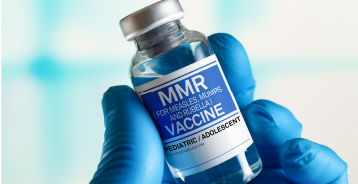Prevent mumps and measles
 Medical Conditions
Medical Conditions
We need to process your personal information for you to interact with this website. We also use Cookies to enhance your experience. Please accept the Website Ts and Cs and Data Protection and Privacy Policy to fully access the website.
Chronic renal disease, also referred to as chronic kidney disease, is damage to your kidneys that leads to loss of function in these organs. Your kidneys are important as they filter waste and excess fluid from your blood, which is then excreted as urine. If your body struggles to get rid of this waste, it can become dangerous. However, there are ways to help slow kidney damage and even prevent chronic renal disease.
Symptoms
There are few, if any, symptoms in the early stages of chronic renal disease. Symptoms may only become apparent when your kidneys are significantly damaged. At this stage, you may experience high blood pressure, fatigue, loss of appetite, or a water-electrolyte imbalance. Other common symptoms include insufficient urine production, kidney damage, abnormal heart rhythm, fluid in the lungs, severe unintentional weight loss, swollen feet and ankles, muscle cramps, itching and in severe cases kidney failure.
Diagnosis
Blood or urine tests are required to determine kidney function and diagnose chronic renal disease as symptoms aren’t specific to the disease. You may also be referred to have an ultrasound to assess your kidneys’ size and structure. In some cases, your doctor may recommend a kidney biopsy, where they remove a sample of kidney tissue for testing.
Treatment
The treatment of chronic renal disease depends on its severity and focuses on slowing damage to your kidneys by controlling the underlying cause. Symptoms can be controlled and complications reduced, but there is no cure for chronic renal disease and the damage already caused is permanent.
Medications may help to manage your symptoms and the underlying conditions causing kidney damage. Treatment may include medication for high blood pressure, high cholesterol levels, anaemia and/or fluid retention. Your doctor may also prescribe calcium and vitamin D supplements to prevent weak bones, as well as a phosphate binder to lower phosphate levels in your blood and to protect your blood vessels from calcification damage.
A diet that is low in salt, fat, potassium and protein could help lower waste products in your blood that your kidneys have to filter. Avoiding salt may also help to lower cholesterol levels.
Your doctor may recommend that you make an appointment with a dietician for advice on a healthy, balanced diet to help you manage your condition.
If your kidneys are severely damaged, having progressed to end-stage renal disease (ESRD), also known as kidney failure, which is fatal, you will need dialysis or a kidney transplant.
Dialysis filters and removes waste products and excess fluid from your blood via a machine because your kidneys are no longer able to. Depending on clinical and other parameters, Bestmed Medical Scheme will consider funding for peritoneal or haemodialysis. Bestmed has appointed National Renal Care (NRC) as designated service provider (DSP) across all plans. The Scheme’s beneficiaries, who need dialysis for end-stage chronic renal disease, need to register on Bestmed’s Dialysis Care programme to qualify for additional benefits and support.
You don’t need to be on dialysis to have a kidney transplant. A kidney transplant involves surgery to replace an unhealthy kidney with a healthy one from a donor. Lifelong medication will be needed thereafter so that your body won’t reject the new kidney.
Preventing chronic renal disease
You may be more at risk of chronic renal disease if you have high blood pressure or diabetes. Fortunately, blood pressure and blood sugar levels can be controlled with advice from your doctor.
A healthy lifestyle can also help to keep the common causes of chronic renal disease under control or even prevent them. To help lower your risk of chronic renal disease and the conditions that cause it, make sure that you:
Although chronic renal disease may be serious, there are ways to treat it to slow damage to your kidneys, and even prevent it.
Bestmed provides cover for the diagnosis, medical management and medicines of 26 listed chronic conditions, including chronic renal disease, across all plans.